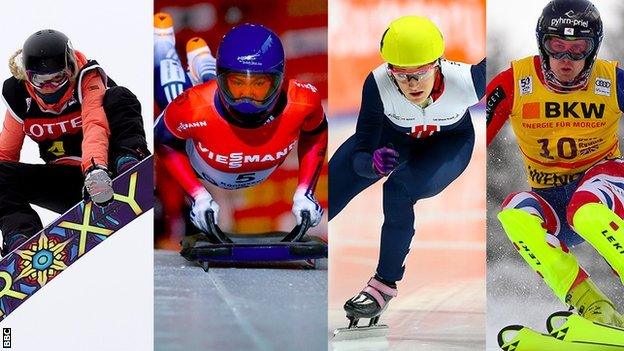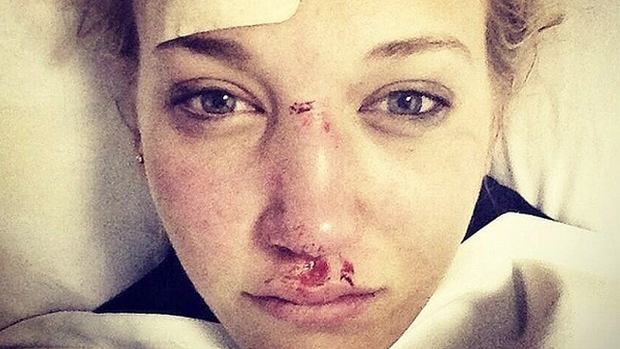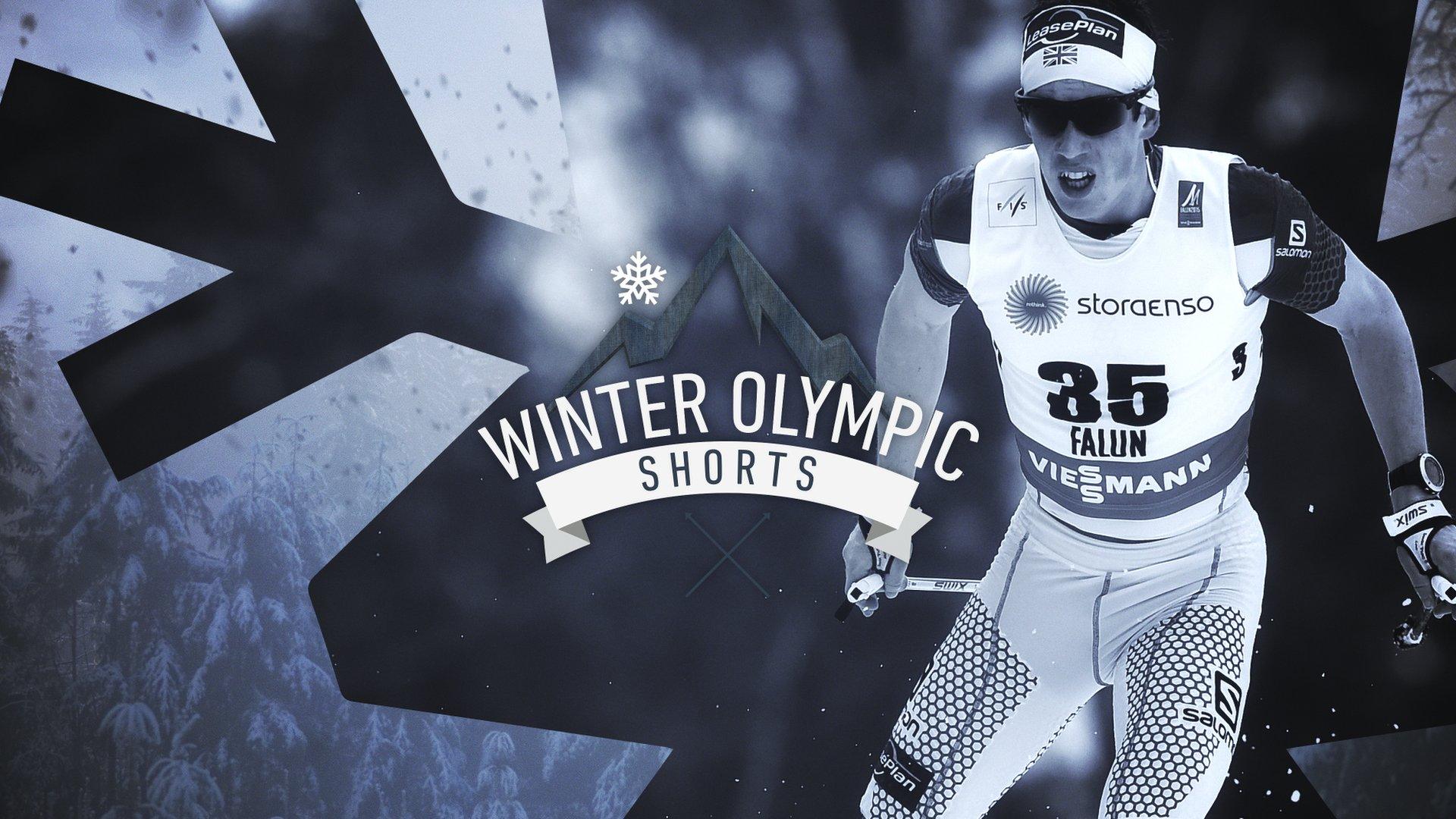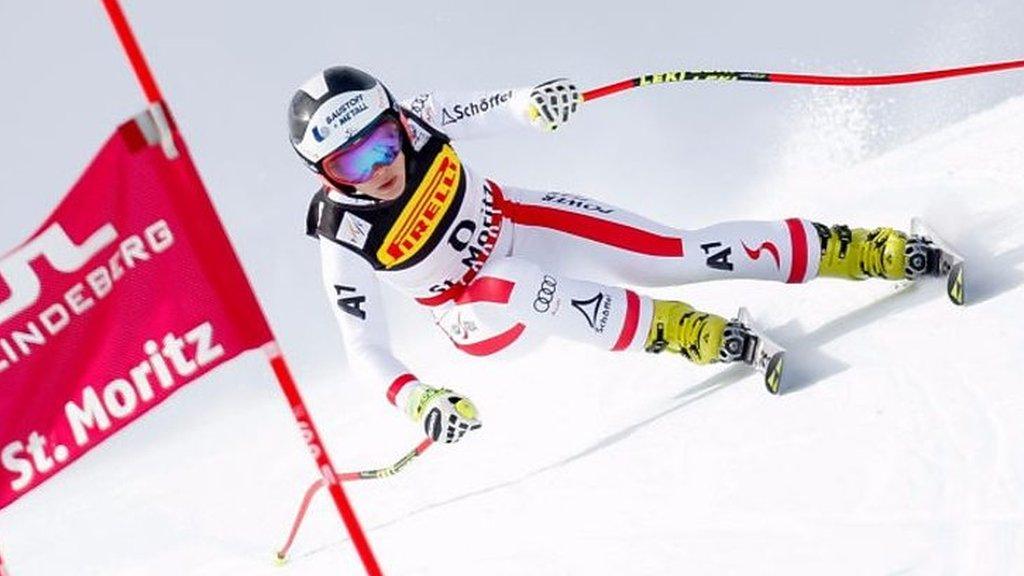Winter Olympics 2018: Team GB medal chances 'exciting'
- Published
- comments

Could 2018 be a record-breaking Winter Olympics for Team GB?
Great Britain should be excited about its medal chances at the 2018 Winter Olympics, according to chef de mission Mike Hay.
It would be a record-breaking Games for Team GB in Pyeongchang if they win more than the four medals they have taken home on two occasions, in 1924 and 2014.
UK Sport has doubled its investment in Olympic winter sports from £13.5m for the four-year cycle to the 2014 Sochi Games to £27.9m for the South Korea event.
And with a year go until the 2018 Games begin, UK Sport has agreed a total target of between four and eight medals across the various Winter Olympic disciplines at their respective World Championship events this year.
"The money that UK Sport have put in is a real confidence boost to our winter athletes," Hay told BBC Sport.
"We've got to go in with high hopes and there are some early indicators that our athletes are going to be competing for podium places."
Great Britain may have won 67 medals in one Games at the 2016 summer Olympics in Rio but Winter Olympic medals have been harder to come by because of a lack of natural facilities and smaller talent pools to select from.
In the 97-year history of the Winter Olympics, Great Britain have won only 26 medals but Hay believes the country is becoming more accepted on the world stage, especially in freestyle skiing and snowboarding, short track speed skating, curling and skeleton.
"It's very difficult to challenge the alpine nations but we're making progress into that second tier, if you like, and getting credibility," Hay said.
Meanwhile, to mark a year to the event, British Ski and Snowboard has announced it plans to become one of the world's top five skiing and snowboarding nations by 2030.
Who are Britain's medal contenders?
Great Britain will send about 60 athletes to the Games.
Ski and snowboard: It took 90 years for Britain to win a first Winter Olympic medal on snow, courtesy of Jenny Jones' snowboard bronze in 2014 but in Pyeongchang there could be podium ambitions for athletes in freestyle skiing, snowboarding and even alpine skiing.
Snowboarder Katie Ormerod has been a model of consistency on the World Cup stage, winning the Moscow big air and claiming two other podiums as well as an X Games bronze medal. Her cousin Jamie Nicholls, Billy Morgan and Aimee Fuller have also won World Cup medals and could threaten the podium in slopestyle and big air in 2018.
James Woods finished fifth in ski slopestyle in Sochi and will be a medal contender in South Korea. He won the season-opening World Cup slopestyle in New Zealand and just missed out on an X Games slopestyle medal, coming fourth. Woods did win the big air title in Aspen but only snowboard big air will make its debut in the Winter Olympics.
In the alpine world, slalom specialist David Ryding became the first Briton for 36 years to claim a World Cup medal when he finished second in Kitzbuhel, Austria, in January and has backed that up with three other top 10s this season.
British Ski and Snowboard has an ambitious target of being a top-five performing nation by 2030. It says it has a strategy to raise more funds and put a world-class coaching structure in place.
Lizzy Yarnold's had a change of pace - making lampshades
Short track speed skating: After the heartbreak of being penalised in all her races in Sochi, Elise Christie will be determined to leave Pyeongchang with a medal. She is leading the world 500m standings this season and has also won World Cup medals in 1000m and 1500m. Charlotte Gilmartin could also claim a medal.
Skeleton: Since skeleton was reintroduced into the Winter Olympics in 2002, Great Britain have won a medal at each of the four Games. Lizzy Yarnold won gold in Russia and is aiming to become the first Briton to retain a Winter Olympic title. She took the 2016 season off but is back and building up to South Korea. Laura Deas has had World Cup success and will also be in contention.
Curling: Great Britain won silver and bronze in Sochi and will again be challenging for the medal matches in 2018. The introduction of mixed doubles boosts GB's chances even more.
What's new in 2018?
Snowboard big air: Snowboarders will head down a ramp and perform a trick off a large jump called a kicker. The new addition is great news for Britain's medal aspirations as there are podium potential athletes in the men's and women's competitions. Meanwhile, it is goodbye to snowboard parallel slalom, which has been dropped from the Games.
Curling mixed doubles: Each team is made up of a man and a woman and they play with six stones, rather than the usual eight and there are only eight ends, instead of the traditional 10. Great Britain finished fourth at the 2016 World Championships and compete in the 2017 competition at the end of April. Performances from the 2016 and 2017 World Championships will be taken into account with the top seven ranked nations, plus hosts South Korea, qualifying for the Games.
Speed skating mass start: This will take place on the long track and will be a 16-lap race where all skaters start simultaneously. There will be four sprints where points are awarded. The first three athletes to cross the finish line will be awarded the medals.
Alpine skiing team event. Teams will consist of two men and two women and they will compete against other nations in head-to-head slalom races.
What will Pyeongchang be like?
The 2018 Winter Olympics will be held between 9 and 25 February and it is the third time Asia has held a Winter Olympics after Japan hosted both the 1972 Games in Sapporo and Nagano in 1998.
Pyeongchang will be split between the coast and the mountains, similarly to Sochi. The coastal cluster will host curling, ice hockey, figure skating, short track and speed skating, while the mountain area will host skiing, snowboarding, bobsleigh, skeleton and luge.
The winter Paralympics will run from 9 to 18 March.
- Published7 February 2017

- Published7 February 2017

- Published7 February 2017
